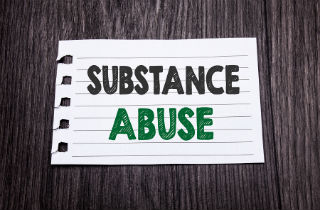Substance abuse help: 3 behavioral therapy ideas
Some people may be able to manage drinking or drug problems themselves. And some people require professional help from a psychotherapist or counselor to assess and understand issues related to substance use. Regardless, if you think you have a drinking or drug problem, you can take steps at home before you seek help. Dr. Cindy Levin has over 16 years of clinical experience and specializes in cognitive behavioral therapy for people struggling with substance use and abuse. Here are three (3) ideas taken from her clinical experience on what you can do at home to both assess and manage substance use.
1. Monitor your alcohol / drug use
It has been shown repeatedly that keeping a journal or log of behavior helps people to actually make change. Taking account of your drinking or drug use through a daily log is easy and gives you accurate information about your starting point. This will allow you to track change over time in a concrete way. It can also identify patterns of use connected with times of the week, emotional states, and triggers in your environment. Keeping track will also allow you to gauge the problem by knowing where you are and comparing it to national norms.
2. Set realistic goals for substance use behavior change
It is important to set a starting goal for yourself that is achievable and short-term. Once you know where you are starting from (see number 1), you can decide when and how much of the behavior you want to change. For example, you may currently drink 8-10 drinks on a night out with friends. Seeing that 81% of the US male population drinks 1 to 7 drinks per week, you may decide that your short-term goal will be to keep your ‘night out with friends limit’ at under 7 drinks. You may want to eventually meet the goal of only drinking 1 to 7 drinks per week, but starting small will give you a lot of good information about your change process. You will find out if it is easy or difficult to meet the goal.
If you are not successful, you may have to take additional steps to reach the goal. If you are successful, you gain insight into what works for you in being able to cut back. Make sure to continue to keep track of your progress so you know when you have made progress even if you haven’t reached the goal.
3. Set yourself up for success when cutting back
When trying to change behavior, use what you already know about yourself (and what you learned from your log, see number 1) to your advantage. If you know that when you are left alone, you get bored and drink beyond your goal then make sure to schedule time with other people when you know it will be most difficult. Identify what are your main weak spots or triggers and make a specific plan for how you want to handle those situations before you get there. Also, build in a reward system that doesn’t involve drinking or drugs. Make a list of small and large rewards and identify how you will reinforce yourself for meeting your short-term and long-term goals. Don’t forget to take credit for the incremental progress you make along the way by noticing what you did do differently even if it isn’t a perfect achievement of the goal.
Pre-counseling ideas for substance use
Did these suggestions help you? Do you have other ideas for how you can stop drinking or using? Has something worked for you in the past? Please share below, or ask your questions and we’ll ask Dr. Levin to respond to you personally!









Related Posts